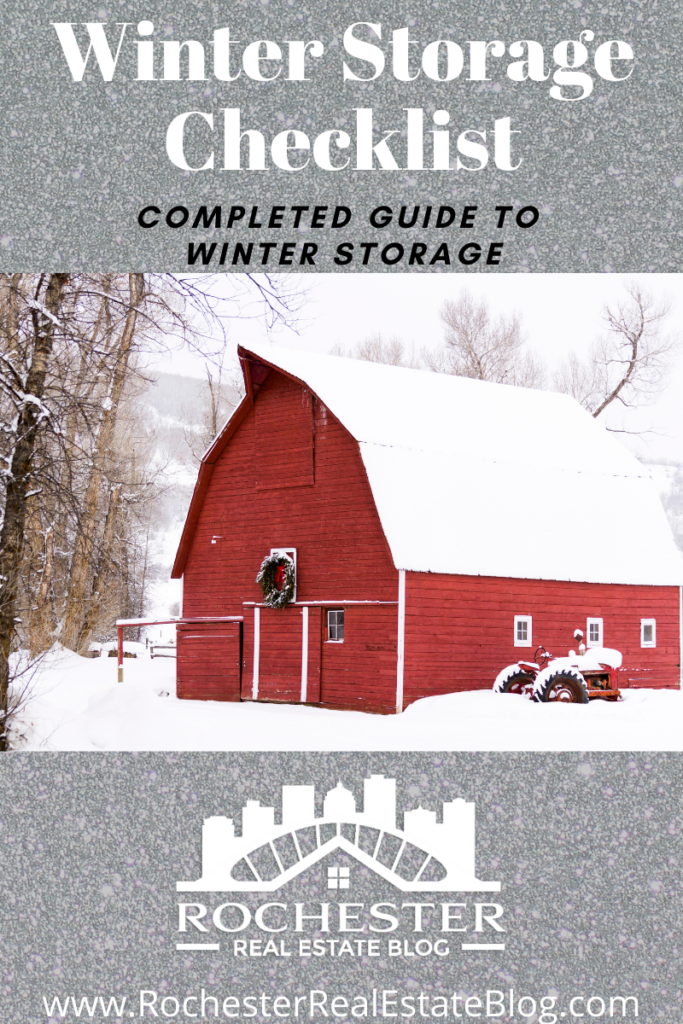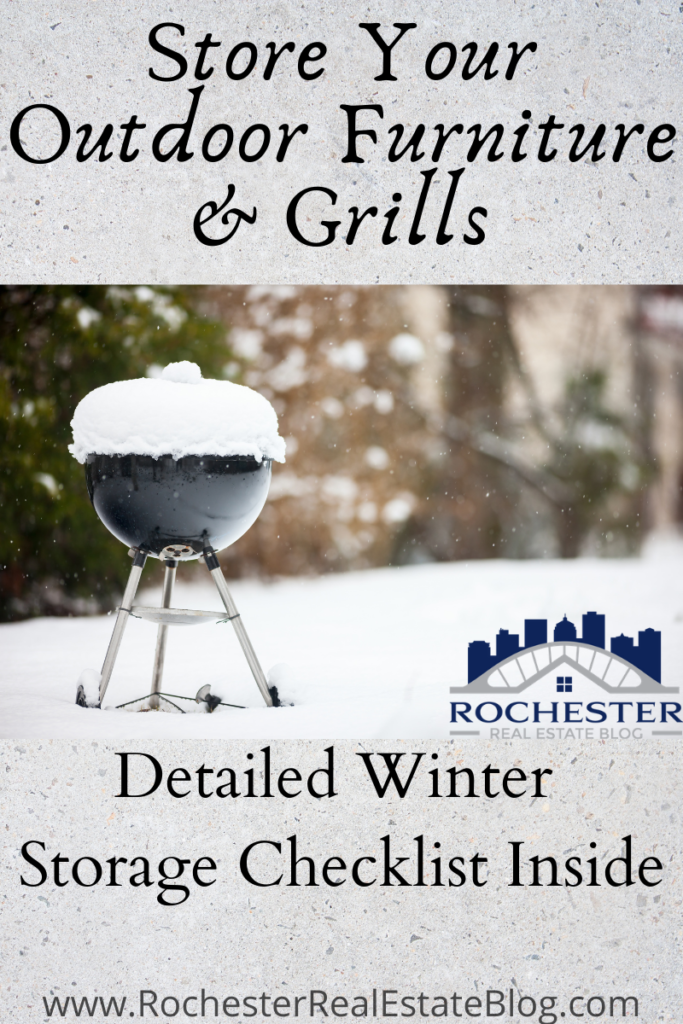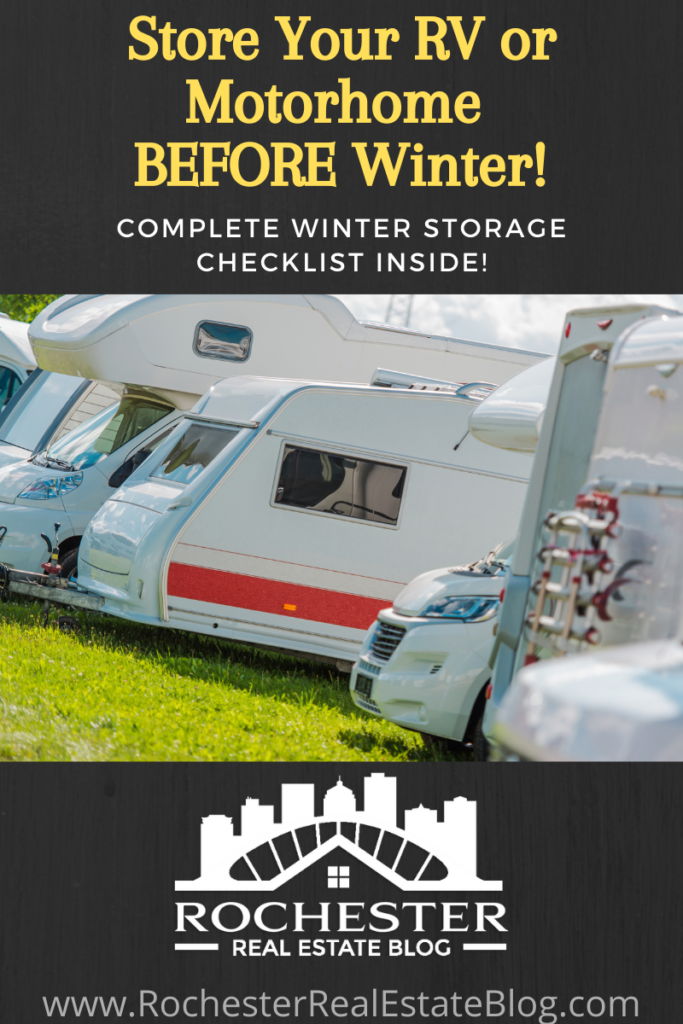The Complete Winter Storage Checklist For Your Belongings
Have questions about buying or selling a home?
Ask Now!
With the cold season approaching fast, many homeowners start asking themselves if they know how to properly winterize a home.
Homeowners should start the process of winter-proofing their belongings. From tools and outdoor furniture to sporting equipment and recreational vehicles, most households contain items that need to be protected from rain, snow and freezing.
Finding enough space at home to properly protect all these items away from the harsh winter weather can be challenging. Your garage, shed or basement might be not enough to contain all of them and also allow you to comfortably use these spaces according to their primary purposes.
One way to compensate for the lack of storage space in your home is by renting a self storage unit, a solution that many Americans are already taking advantage of.
A recent STORAGECafe survey saw about a third of the respondents declaring that they are self storage customers, and an additional 11% of the respondents said they are planning to rent a storage unit in the future.
The reason why so many people are self storage users is due to the accessibility and affordability of the service. You get to keep your belongings in a safe place, located somewhere near your home, and you can usually pick up and drop off stuff seven days per week.
Whether you have enough space at home to properly protect your belongings during the winter or you’re planning to rent a self storage unit, here is a list of all the household items that should be protected during the cold season and ideas about how to prepare them for winter storage:
Gardening Tools and Equipment
Remove dirt and grease from gardening tools – spades, forks, shovels, rakes, and so on – before storing them for the winter. The tools must be perfectly clean and dry, otherwise they’ll start rusting and will eventually be rendered useless.
Empty the tanks of all equipment that works on gasoline or other types of liquid fuel, like lawnmowers and chainsaws, and thoroughly wipe all the surfaces clean. Cover the blades and other sharp components of these tools to protect them and also to avoid accidents while manipulating them. Take out batteries, where appliable, and make sure you store them in a place where temperatures don’t drop below freezing.
Outdoor Furniture and Grills

Outdoor furniture lasts a lot longer if you put it in storage during the winter, so it doesn’t get covered in snow and it doesn’t go through multiple freezing/thawing cycles. That’s especially true for furniture made of plastic or composite materials. However, if your outdoor furniture is massive or heavy, and therefore difficult to move and store, make sure you encase it with some sort of waterproof covering — you should do this too if it is made of wood.
Also, if your barbecue grill is not installed on a covered deck or patio, you should either move it somewhere inside or cover it. Either way, make sure that you remove any remaining charcoal or wood from inside the grill, and that you scrub all its components vigorously before retiring it for the winter.
Bikes, Motorbikes, Buggies, & ATVs
Say goodbye to all these fun vehicles for now, but make sure you’ll be able to enjoy them again next spring, by storing them safely and properly.
In the case of bikes, start by washing the entire frame with water, regular dish soap, and a soft brush. Wipe it dry, then use some silicon oil on it for extra protection. Clean and lube the chain. If you’re planning to store the bike in a standing position, inflate the tires and check them every few weeks. If the tires deflate, the rims of your bike will get damaged. An alternative solution is to hang your bike on a wall, or to remove the wheels, dismantle the frame, and put it in a bike bag.
Regardless of how you decide to store it, it’s important to avoid humid environments like basements.
As for the other small two- and four-wheelers people might have around, like buggies, ATVs, dirt bikes and motorbikes, there are a few steps you must follow before storing them for winter:
- Clean the vehicle;
- Drain all the fuel if the vehicle has a plastic tank;
- Fill up the tank if the vehicle has a metal one and add fuel stabilizer — this way, you’ll prevent the metal tank rusting and moisture freezing and thawing inside it;
- Fully inflate the tires;
- Disconnect the batteries;
- Additionally, you can also change the oil, so your vehicle is ready to go as soon as the nice weather returns.
Vintage Cars
Vintage cars are cool and gorgeous, but what they’re usually not is suitable to be driven during winter. For your safety, it’s better to use them only during the summer months and to put them in storage for the winter.
Here are the main things you should keep an eye on to make sure your beloved vintage car gets to see spring again:
- Humidity is one of the biggest enemies of classic cars, so find a storage space that’s dry and doesn’t get too cold;
- Vacuum and clean the interior of the car and apply a protector to any leather surfaces that may be there;
- Lubricate door hinges and window handles;
- Take the car to your mechanic to check for any leaks or other issues and ask them to change the oil, brake fluid and anti-freeze;
- Wash the car’s undercarriage using a pressure cleaner;
- Fill up the tank and add a stabilizer to the gasoline;
- Spray around the engine with an anti-rust lubricant;
- Disconnect the car’s battery;
- Place a car dehumidifier inside your vehicle;
- Protect the car with a good-quality cover.
RVs and Motorhomes

Preparing these vehicles for the winter is a far more complex task that preparing a regular car. There are many details you need to consider, and many tanks and batteries to protect.
Here are the main steps for getting your RV ready for winter storage:
- Drain the black water tanks and flush them, then drain the freshwater tanks; open all the faucets to make sure no water remains in the pipes, then open the low point drain valves to ensure complete drainage;
- Fill the tanks with antifreeze if you’ll be keeping your RV outside and if the temperatures in your area regularly go below freezing during winter;
- Fill the gas tank completely to prevent moisture from freezing inside it;
- Disconnect the electrical system;
- Disconnect the batteries and accumulators or remove them completely if the RVs remains outside for the winter. Store them in a dry, warm place and make sure you check and recharge them every few weeks;
- If your RV has propane tanks, don’t forget to remove those too;
- Seal all the openings in your RV to keep rodents out.
Final Thoughts
Following all the steps in this checklist will help you make sure that all your important belongings are well protected during the winter months.
This will ensure that you’ll be able to enjoy them again in the spring once the cold weather breaks!
Other Winter Storage & General Home Maintenance Tips
- Fall home maintenance checklist – The above winter storage checklist is extremely helpful for the upcoming winter months, however, it’s not the only important home maintenance checklist you should follow! Take a look at the most important fall home maintenance tasks that you should be completing around the house.
- Winter home selling mistakes to avoid – If you’re reading this winter storage checklist because you’re preparing to sell your home this winter, you need to be aware of the most common mistakes. In this article you’ll find out the most common mistakes made by home sellers during the wintertime.
- Should I sell my home during the winter? – Selling a home during the winter is certainly more challenging then selling a home during the hot spring market. It’s important that if you’re considering a home sale during the winter months, you’ve strongly considered all your options. This article provides some important things to consider when determining if you should sell your home during the winter.
- Winter curb appeal tips – If you’ve decided that selling your home during the winter is something you’re ready to tackle, it’s still vital that your home has awesome curb appeal. This incredible article shares the best winter curb appeal tips from 18 real estate pros!
About the author: The above article on “The Complete Winter Storage Checklist For Your Belongings” was written by Kyle Hiscock, a top real estate agent in Pittsford NY with RE/MAX Realty Group.
Since being launched in 2013, Kyle has published more than 150 quality, in-depth, and unique real estate related articles on the Rochester Real Estate Blog pertaining to topics varying from home selling to mortgages and everything in between! In addition to quality real estate related content, there are also many quality articles pertaining to the Greater Rochester NY area.
The Rochester Real Estate Blog has been recognized by many reputable websites as one of the best real estate blogs to visit and follow! In addition to being recognized as one of the best real estate blogs, Kyle has been recognized as one of the top Realtors on social media by several organizations and websites.
About Rochester’s Real Estate Blog: Rochester’s Real Estate Blog is owned and operated by Kyle Hiscock of the Hiscock Sold Team at RE/MAX Realty Group. With over 40 years combined experience, if you’re thinking of selling or buying, we’d love to share our knowledge and expertise.
We service the following Greater Rochester NY areas: Irondequoit, Webster, Penfield, Pittsford, Fairport, Brighton, Greece, Gates, Hilton, Brockport, Mendon, Henrietta, Perinton, Churchville, Scottsville, East Rochester, Rush, Honeoye Falls, Chili, and Victor NY.